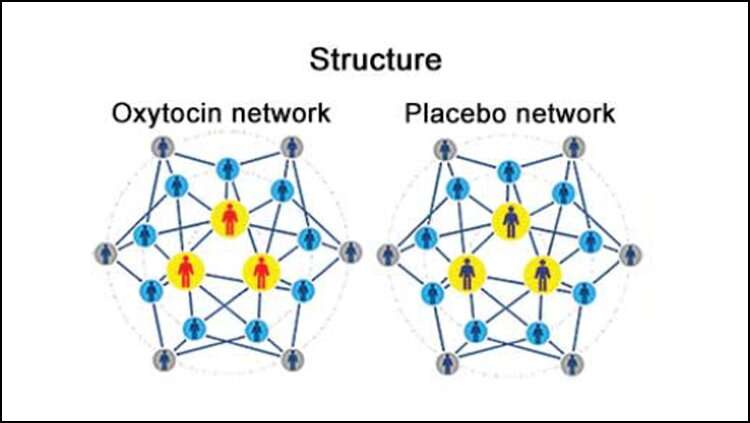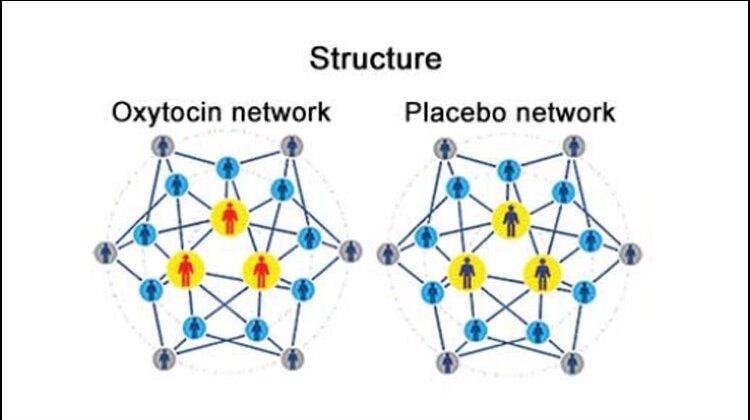
Administering oxytocin to the central members of a social network spreads cooperation via increased punishment of uncooperative behavior, according to new research published in JNeurosci.
Large groups of people cannot peacefully coexist without cooperation—more social and cooperative people tend to end up as leaders in formal organizations and informal social groups. Yet cooperation can conflict with individual goals. Oxytocin, known for its involvement in bonding, may explain how humans evolved the cooperation needed to live in groups.
Li et al. gave intranasal oxytocin or a saline placebo to participants who occupied the most influential, or central, role in artificial social networks. The participants played a series of virtual games with strangers. In one game, the central members received money from peripheral members and set a threshold for the minimum offer they’d accept. When the central members received oxytocin, cooperation spread through the network; after many rounds of the game, the offer and acceptance threshold evolved into a fifty-fifty split, a sign of cooperation. In another game, oxytocin increased the likelihood central members would choose to cooperate and then punish peripheral members for uncooperative behavior, which tracked with the group increase in cooperation.
Source: Read Full Article
